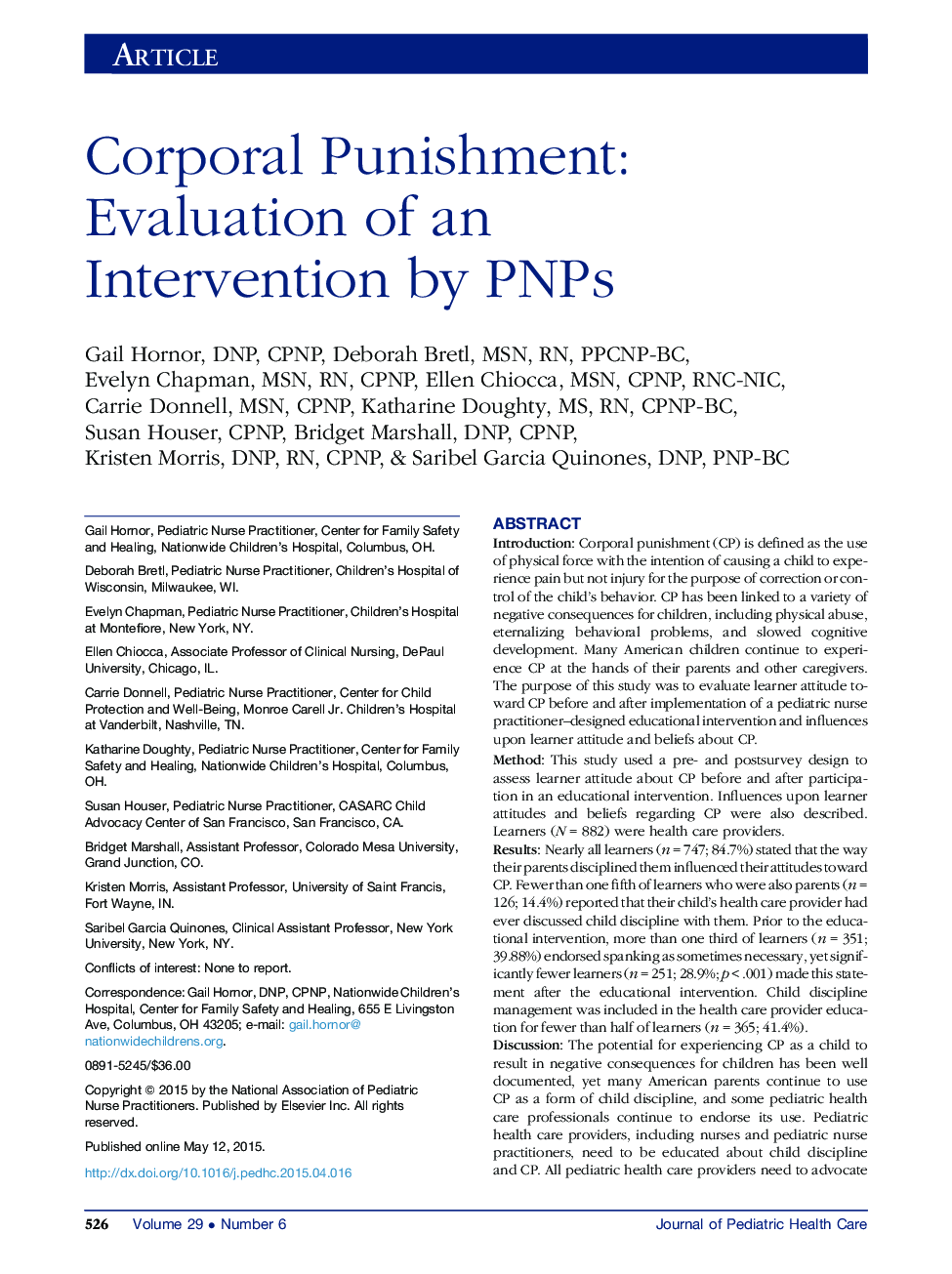| Article ID | Journal | Published Year | Pages | File Type |
|---|---|---|---|---|
| 2664056 | Journal of Pediatric Health Care | 2015 | 10 Pages |
IntroductionCorporal punishment (CP) is defined as the use of physical force with the intention of causing a child to experience pain but not injury for the purpose of correction or control of the child's behavior. CP has been linked to a variety of negative consequences for children, including physical abuse, eternalizing behavioral problems, and slowed cognitive development. Many American children continue to experience CP at the hands of their parents and other caregivers. The purpose of this study was to evaluate learner attitude toward CP before and after implementation of a pediatric nurse practitioner–designed educational intervention and influences upon learner attitude and beliefs about CP.MethodThis study used a pre- and postsurvey design to assess learner attitude about CP before and after participation in an educational intervention. Influences upon learner attitudes and beliefs regarding CP were also described. Learners (N = 882) were health care providers.ResultsNearly all learners (n = 747; 84.7%) stated that the way their parents disciplined them influenced their attitudes toward CP. Fewer than one fifth of learners who were also parents (n = 126; 14.4%) reported that their child's health care provider had ever discussed child discipline with them. Prior to the educational intervention, more than one third of learners (n = 351; 39.88%) endorsed spanking as sometimes necessary, yet significantly fewer learners (n = 251; 28.9%; p < .001) made this statement after the educational intervention. Child discipline management was included in the health care provider education for fewer than half of learners (n = 365; 41.4%).DiscussionThe potential for experiencing CP as a child to result in negative consequences for children has been well documented, yet many American parents continue to use CP as a form of child discipline, and some pediatric health care professionals continue to endorse its use. Pediatric health care providers, including nurses and pediatric nurse practitioners, need to be educated about child discipline and CP. All pediatric health care providers need to advocate for the use of positive parenting principles and discourage the use of CP.
